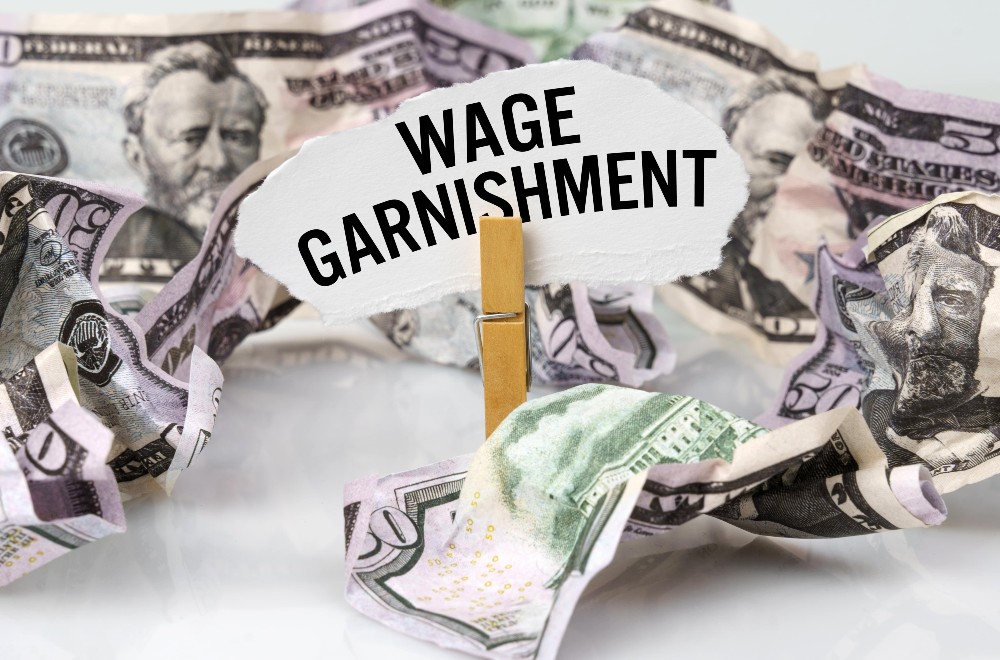An Atlanta wage garnishment lawyer will give you the legal support you need to fight and stop a wage garnish in Georgia. CMC Law in Atlanta has experienced, licensed bankruptcy and wage garnishment attorneys. They understand how to mitigate the overwhelming and stressful wage garnishment process.
Let’s examine exactly what a wage garnish is and how a Georgia garnishment and bankruptcy attorney from CMC Law will help you.
Wage Garnishment
Wage garnishment is when an institution has a withholding order to remove wages from your weekly disposable income earnings. The most common reasons are backed taxes, child support, student loans, or credit card debt. Luckily, garnishments can be halted by a bankruptcy filing. Although, this should not be done without the presence of an experienced bankruptcy attorney.
There are rules and legal limits as to how much of your paycheck can be garnished. For example, creditors in most cases, cannot obtain a wage garnish without first starting a lawsuit to collect the money from you. Specifically, a creditor is required to file a lawsuit in court (i.e.: sue you). After the creditor gets the wage garnishment approved, the creditor then needs to send documentation to your employer. This is usually done through your local sheriff. Only after this point, will you receive a notification that a wage garnish will be removed from your paycheck.
However, some child support, alimony, tax organizations, or student loan creditors don’t have to go through the court system to get a wage garnishment. If you have had a wage garnished, contact a wage garnishment lawyer now to make sure the United States legal process was followed.
Each state has different exemption laws to determine the amount of income a debtor is allowed to keep. It may be especially useful for you to know your state’s laws if you only make the federal minimum wage. In the state of Georgia, the garnishment limit is 25% per week. Furthermore, if a debt is not paid within seven months in Georgia, a creditor must file permission for a new wage garnish. Concerning child support, these numbers may be different.
How to Stop a Wage Garnishment in Georgia
It is important to note that once a debtor has more than one garnishment, less legal protections may be available to you. Under federal law, a U.S. citizen is not protected from more than one creditor garnishing your wages. Also, if you have had a wage garnish for more than one debt by the same creditor, you may not be protected. Again, the most important thing is to contact a wage garnishment lawyer in Atlanta.
How does a wage garnishment lawyer help me fight a wage garnish?
A lawyer will file papers for you to get a court hearing date. In court, your lawyer will present evidence at your hearing on your behalf to fight the wage garnish. Next, the judge will either terminate the wage garnish or allow a creditor to obtain it. Most importantly, you do have to present at the hearing with your lawyer.
Depending on your situation, a Georgia wage garnishment lawyer will help stop a wage garnish by having you file for bankruptcy.
Backed taxes
Do you owe money to the IRS (Internal Revenue Service) or any state and local tax agencies? Contact a local garnishment attorney today. The IRS, state, or local tax agencies don’t have to get a court order to obtain a wage garnish from debtors.
Student loans
To illustrate, with student loans, a debtor should be notified in writing. You should receive a certified letter at least 30 days before the garnishment is scheduled to start. The letter must state the amount you owe, how to obtain a copy of the loan records, how to request a deferment, and how to request a hearing. If you did not receive a certified letter stating this information, it is time to contact a wage garnishment attorney.
Contact CMC Law for Legal Support with a Wage Garnish
The wage garnish process can be complex and requires the support of a garnishment attorney. Schedule a free consultation now with an experienced Georgia bankruptcy and wage garnishment lawyer. Call the Law Offices of Charles Clapp at 404.585.0040.

